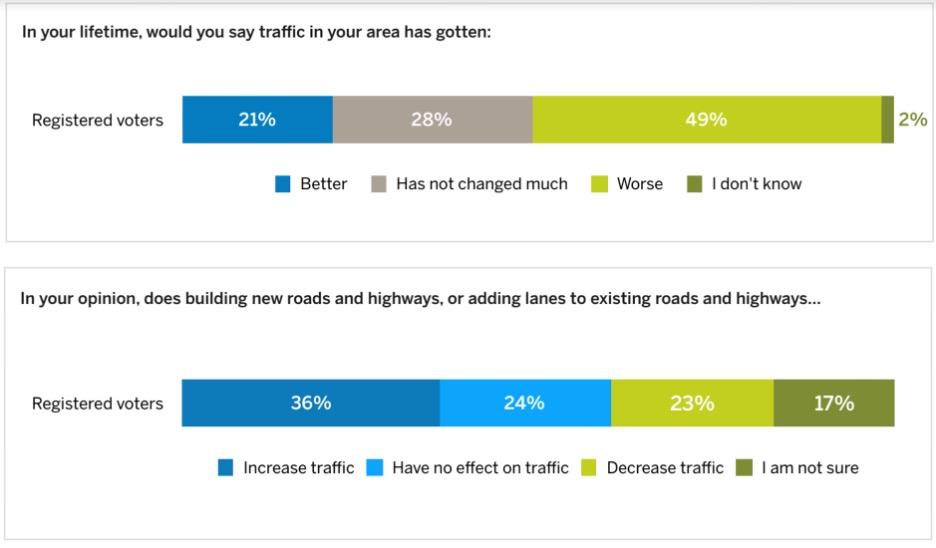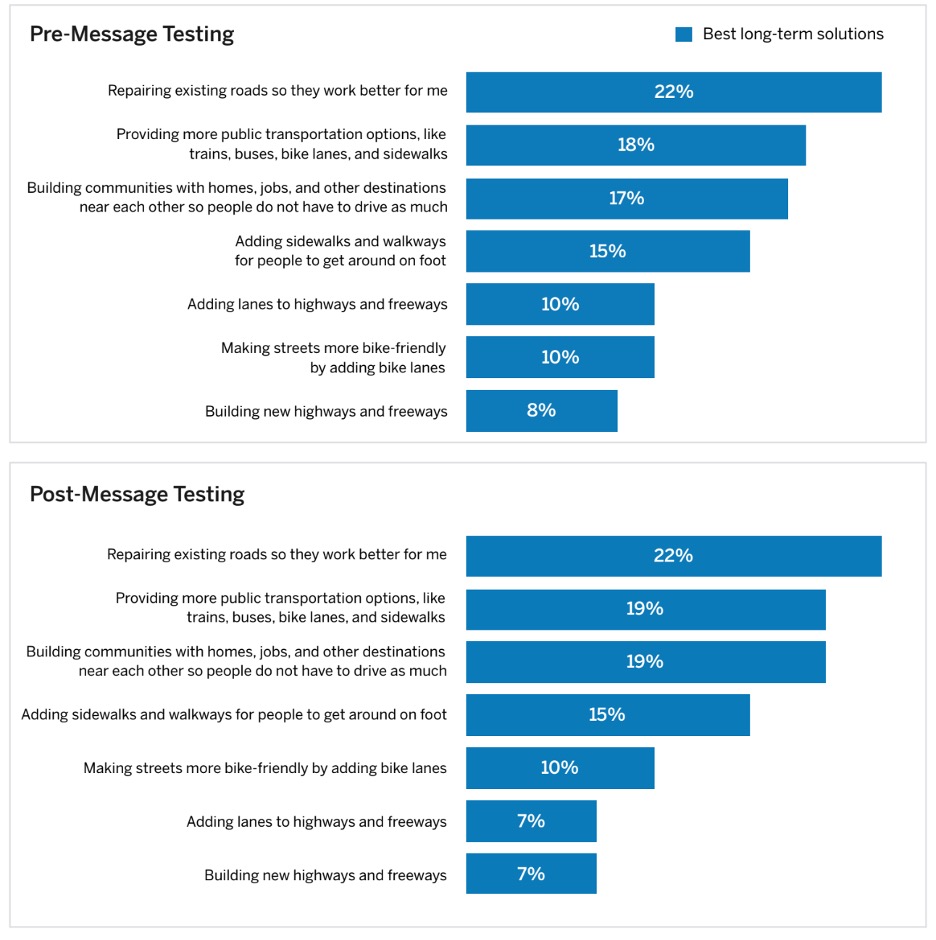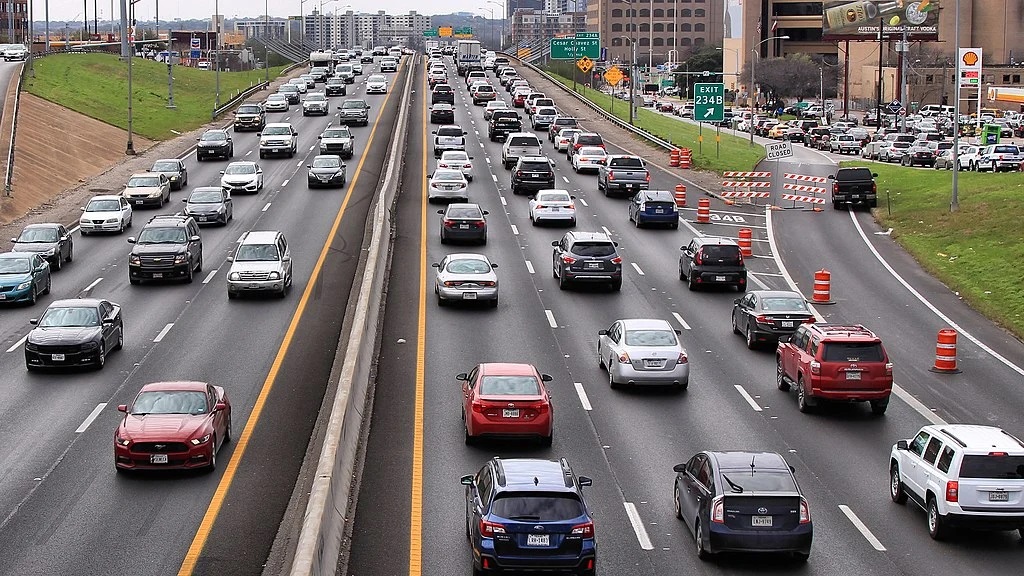More than two-thirds of Americans understand that the highway expansions happening in their backyards won't fix congestion as local pols often claim— and many want those officials to stop spending money on projects that endanger their families, a new poll finds.
In a demographically representative survey of 2,001 registered voters in America — 90 percent of whom own a car — researchers found that a staggering 67 percent either "strongly" or "somewhat" agreed with the statement that “expanding highways takes years, causes delays, and costs billions of dollars."
Meanwhile, the same percentage agreed that "widening highways attracts more people to drive, which creates more traffic in the long run," defeating the stated purpose for countless road expansion projects across the country.
To put that stunning finding another way: the average U.S. voter seemingly understands the long-proven principle of "induced demand" better than many U.S. transportation officials, considering that they collectively dedicated more than one-third of all capital spending to expanding the road network in hopes of curing traffic jams in 2019 alone. That year, one-fifth of the nation's roads were rated in "poor" condition in need of urgent repair, and countless more were designed to dangerous standards that made walking, biking, and taking transit dangerous, if not impossible. Yet build more roads they did.
"Induced demand is real and people understand it," said Steve Davis, associated vice president for transportation strategy at Smart Growth America, which co-commissioned the study. "They may not know the term, but ... only a small percentage believes the promise that new lanes and new roads magically make congestion and delay go away."

In addition to what didn't work, the survey respondents also had a strong understanding of what does work to keep traffic moving.
When given seven possible congestion solutions, three — "repairing existing roads," "providing more public transportation options" and "building communities ... so people do not have to drive as much" — were chosen as the most-effective solutions, while "building new highways" ranked dead last.
"Adding lanes to highways and freeways" tied for second-to-last with "making streets more bike-friendly" — at least until the survey respondents were showed a sample message aimed at swaying support for sustainable modes, after which new lanes lost a little support. (More on those in a moment.)
In both cases, though, more than 82 percent of Americans preferred congestion mitigation strategies other than America's default approach of building bigger and bigger roads for drivers, and were about twice as likely to pick basic road repair and public transportation over building new lane miles.
"There's a political perception that [induced demand] is not understood, and this is used as an excuse for not talking about it," said Beth Osborne, executive director of Transportation for America. "And we also have to ask how long people will accept this [kind of decision-making] before they'll cut off their money."

Osborne also notes, though, that "cutting off the money" won't be easy — at least until America fundamentally rethinks the way it funds its transportation network.
Under the Infrastructure Investment and Jobs Act, state DOTs are essentially guaranteed billions of dollars through unrestricted federal highway trust funds to spend as they wish, and are "insulated from accountability" when they don't direct that money to the things that surveys like this prove people actually want.
To build power to demand that accountability, the pollsters also showed survey respondents 10 sample statements about the power of highway removals and other "reconnecting communities" projects, and identified which messages were most likely to sway the skeptical. And they found some winners: the greatest share of respondents (an overwhelming 72 percent) strongly agreed with safety-focused messaging that emphasized that "reconnecting neighborhoods with streets, sidewalks, bike lanes, and bus routes makes it safer and easier to get around; that saves lives."
Perhaps depressingly, the message with the least support focused on the damaging impact of transportation projects on communities of color and the importance of "redress[ing] this discrimination ... so no one is left behind" — though, hearteningly, even that statement still hit a significant 60 percent support.
The findings, said Mike McGinn, executive director of America Walks, show that politicians "don't have to trick the public with what you're trying to do; people are already on board. The public is way ahead of the elected officials, and it's way ahead of the transportation officials in [talking about] the kind of future they want to see. It's important for elected officials to listen to them."






